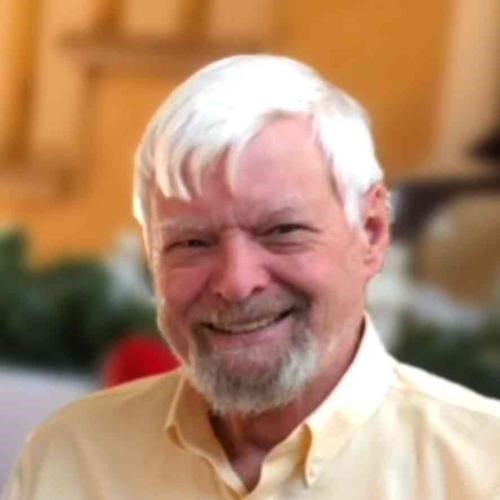 Hinge Health now public. Today (22 May) Hinge Health debuts as HNGE on the NYSE, the first big IPO for healthcare tech in two years. Last night, the virtual MSK/physical therapy provider raised $437.3 million in its IPO. Shares were priced at the high end of the offering range at $32. The timing is a small surprise, as in early April insiders said to press that they had not committed to any dates due to the market’s roller coaster, but they stayed on their original schedule [TTA 8 Apr].
Hinge Health now public. Today (22 May) Hinge Health debuts as HNGE on the NYSE, the first big IPO for healthcare tech in two years. Last night, the virtual MSK/physical therapy provider raised $437.3 million in its IPO. Shares were priced at the high end of the offering range at $32. The timing is a small surprise, as in early April insiders said to press that they had not committed to any dates due to the market’s roller coaster, but they stayed on their original schedule [TTA 8 Apr].
The nitty-gritty:
- The floating is 13,666,000 shares of Class A common stock, 8,522,528 of which are being sold by Hinge Health and 5,143,472 of which are being sold by certain selling stockholders.
- The underwriters have a 30-day option to purchase up to an additional 2,049,900 shares of Class A common stock at $32, less underwriting discounts and commissions.
- The valuation comes in at the $2.6 to $3 billion range. This is a shave-and-a-haircut from the bubbly days of November 2021, when its Series E raise of $600 million gave it a valuation of $6.2 billion–and this was on top of a January 2021 Series D of $300 million [TTA 5 Nov 2021].
- Hinge also has a Class B voting share class that ensures that major investors including Insight Partners (19% prior to the IPO) and Atomico (15%), along with co-founder and CEO Daniel Perez (18.9%), retain control of the company
The IPO was delayed repeatedly in an uncertain market for health tech raises, much less IPOs. Starting in 2024, rumors flew, early filings were made from last April then in October last year [TTA 3 Oct 2024]. Total raises for Hinge as a private company were $826 million from multiple investors, who were undoubtedly clamoring for OPM (other people’s money) and a full or partial exit. Hinge also let some positive results sink in; they reported a 50% increase in Q1 revenue to $123.8 million from $82.7 million in Q1 2024. Net income went positive at $17.1 million, reversing a net loss of $26.5 million in last year’s Q1. Endpoints (requires registration), Hinge Health release, CNBC Will competitor Omada Health be far behind?
The rest of the news is a bit more sobering, reflective of the real challenges health tech/digital health faces, in multiple businesses.
 WeightWatchers’ bankruptcy and fast reemergence may be only a brief waypoint in its troubles. This Editor opined at the time of the 45-day prepackaged Chapter 11 that WW was simply kicking the can down the road. Their subscription model of low calorie diets, points, and exercise no longer worked when well-funded teleprescribers such as Hims & Hers, LifeMD, FuturHealth, and Ro, along with traditional telehealth providers like Teladoc, had long since jumped on the GLP-1 promise of quick and assured weight loss. WW didn’t enter GLP-1 prescribing until October 2024, well after it took off even in high prices and scarcity, but continued to lose subscribers. The coup de grace? The partnering deals that teleprescribers as well as CVS Health’s Caremark PBM worked with Novo Nordisk to stimulate their volume for Ozempic and Wegovy. Thus the Chapter 11 and the dumping of $1.15 billion in debt may buy time, but not solve, their market disconnect.
WeightWatchers’ bankruptcy and fast reemergence may be only a brief waypoint in its troubles. This Editor opined at the time of the 45-day prepackaged Chapter 11 that WW was simply kicking the can down the road. Their subscription model of low calorie diets, points, and exercise no longer worked when well-funded teleprescribers such as Hims & Hers, LifeMD, FuturHealth, and Ro, along with traditional telehealth providers like Teladoc, had long since jumped on the GLP-1 promise of quick and assured weight loss. WW didn’t enter GLP-1 prescribing until October 2024, well after it took off even in high prices and scarcity, but continued to lose subscribers. The coup de grace? The partnering deals that teleprescribers as well as CVS Health’s Caremark PBM worked with Novo Nordisk to stimulate their volume for Ozempic and Wegovy. Thus the Chapter 11 and the dumping of $1.15 billion in debt may buy time, but not solve, their market disconnect.
An article from earlier this week in MedCityNews takes the same tack in an interview with industry analyst Michael Schnell, a director in health consultant West Monroe’s healthcare M&A group. Mr. Schnell regards WW as a legacy company in representing the old ‘diet culture’, with the new teleprescribers representing “private, digital-first, affirming wellness experiences that are in themselves a rejection of ‘diet culture.’” It’s a positioning (real estate in the mind/Denny Hatch) dilemma that in its clarity somehow evaded this marketer. It’s echoed by another industry analyst and Virta Health’s CEO Sami Inkinen, a company that has focused on diabetes control and weight loss via nutrition but pivoted last year to add GLP-1s.
WW’s fundamental dilemma is encased in its fundamental 60 year old promise–that you can lose weight, but it requires commitment and work. Their traditional weight loss model of diet and exercise, once fairly simple, grew complicated and not cheap. Complicated and costly will be beaten every time by those who promise a lot less effort, even with cost and side effects that are significant. Now it costs even less. Cigna’s Evernorth announced yesterday that its PBM Express Scripts now will cap monthly out-of-pocket costs of Novo Nordisk’s Wegovy and Lilly’s Zepbound at $200/month, saving an estimated $3,600 annually versus typical DTC discount programs. FierceHealthcare Can WW buy enough time to solve their market problem? Based on prior marketing experience, it’s not likely even if WW completely reinvents itself.
Even among the weight loss teleprescribers, all is not keen and peachy. Calibrate changed out its second CEO in just over a year. Rob Rebak, most recently CEO for three months of Mosaic Diagnostics and earlier CEO of Forefront Telecare (sold to Access TeleCare), replaces Rob MacNaughton, who joined in February 2024 from venture chair of Redesign Health. Other executives have also departed: CFO Bert Smith and chief clinical officer Jane Ruppert. According to CEO Rebak, MacNaughton will remain on Calibrate’s board as an advisor to him. Joining is a new COO, Paul Merrick, another former Forefront Telecare exec. The breaking report is in Endpoints (may be paywalled) and oddly, not elsewhere including the Calibrate website which does not have an executive list, nor press releases on Business Wire.
Originally a portfolio company of Redesign Health, Calibrate has had its ups and downs. The company sold a 70% interest in a 2023 ‘reorganization’ to private equity firm Madryn Asset Management along with other investors with founding CEO Isabelle Kenyon departing. An early entrant in the GLP-1 obesity management game, promoting ‘metabolic reset’, it also received the brunt of drug scarcity and social media backlash, refunding millions to subscribers.[TTA 26 Oct 2023]
A sidebar on GLP-1s. A systemic review and meta-analysis of 497 articles by a team at Sacred Heart University (CT), retaining eight randomized controlled trials comprised of 2372 participants, all with a BMI ≥ 27 kg/m2, indicates that after discontinuing GLP-1 therapy, weight regain was proportional to the original weight loss. The regain varied by type of GLP-1 drug, but the study labels it ‘significant’. Obesity Reviews (Wiley) 4 April 2025 GLP-1 weight loss is not one course and done–actually good news for the teleprescribers and pharmas as in ‘they’ll be back’.
Oak Street Health replaces its president. The CVS practice unit named Creagh Milford, DO, MPH as Oak Street’s new president. He comes from CVS’ Minute Clinic as head of retail health from January 2024. Dr. Milford replaces Brian Clem, a 10 year Oak Street veteran who according to the Crain’s Chicago Business article and his own LinkedIn posting, “had decided to move on” after being president since May 2019, prior to CVS. Previously, Mike Pykosz, CEO and co-founder of Oak Street Health, had moved up in the months after the May 2023 buy of Oak Street into CVS corporate, eventually heading up their Health Care Delivery unit. He departed fairly suddenly in November 2024 [TTA 27 Nov 2024]
New Mountain Capital (NMC) does the smush again with three portfolio companies. The new entity, Smarter Technologies, combines SmarterDx (AI for chart analysis catching missed billing codes and appeal denied claims), Thoughtful.ai (agentic AI for checking insurance eligibility and prior authorization), and Access Healthcare (RCM). The revenue cycle management (RCM) company for health systems and hospitals will be headed by Jeremy Delinsky, an executive advisor to NMC and founding COO of Devoted Health. It now totals according to their release 200 clients, including more than 60 hospitals and health systems with over 500,000 providers. It processes more than 400 million transactions and manages over $200 billion in combined revenue annually. No other management transitions are mentioned but on the website, the co-founders/CEOs of the three companies are listed alongside Mr. Delinsky. It’s the second big rollup in less than one year for NMC, which last September combined Apixio’s payment integrity business and Vario into The Rawlings Group to create one giant $3 billion payment integrity company. Last January, NMC acquired Machinify Inc. to roll into Rawlings.
NMC is a big investor with $55 billion in management assets that evidently buys with an eye to combining companies–and also isn’t afraid to back quickly out of deals that don’t work. Just ask Anne Wojcicki of 23andMe.
 We close with a Gimlety view from three health investors. MedCityNews’ recent INVEST conference hosted three investors who opined on three important topics: Raffi Boyajian, Principal, Cigna Ventures; Aman Shah, Vice President of New Ventures, VNS Health; Dipa Mehta, Managing Partner, Valeo Ventures. Your Editor’s comments follow.
We close with a Gimlety view from three health investors. MedCityNews’ recent INVEST conference hosted three investors who opined on three important topics: Raffi Boyajian, Principal, Cigna Ventures; Aman Shah, Vice President of New Ventures, VNS Health; Dipa Mehta, Managing Partner, Valeo Ventures. Your Editor’s comments follow.
- Does every startup need to be AI-powered? Everyone may be pitching AI in their models, but it may not really mean anything. What really means something is building a good business first, then adding in AI to make it better, according to Aman Shah of VNS Health. When is AI just a buzz word and really machine learning? Much of the time. Do these companies really understand it? Or is it a money and time-burning diversion?
- There aren’t a lot of new things to build anymore. It used to be that companies found a problem and invented a new way to solve it (ah, remember the cocktail parties of yore?), but that is not the way it works now. Where the most success is now is “creating companies with customers versus trying to create something on their own,” according to Dipa Mehta of Valeo. This is a partnership model that can go sideways if a young company is not careful. Customers may not want to pay and you remain in ‘pilot hell’.
- Value-based care isn’t everything. For early-stage companies, “you can get upside down on your contracts very, very quickly in terms of a financial perspective,” according to Raffi Boyajian of Cigna Ventures. VBC is complicated for providers and for management service companies (MSOs)–imagine being an outsider.
























Most Recent Comments